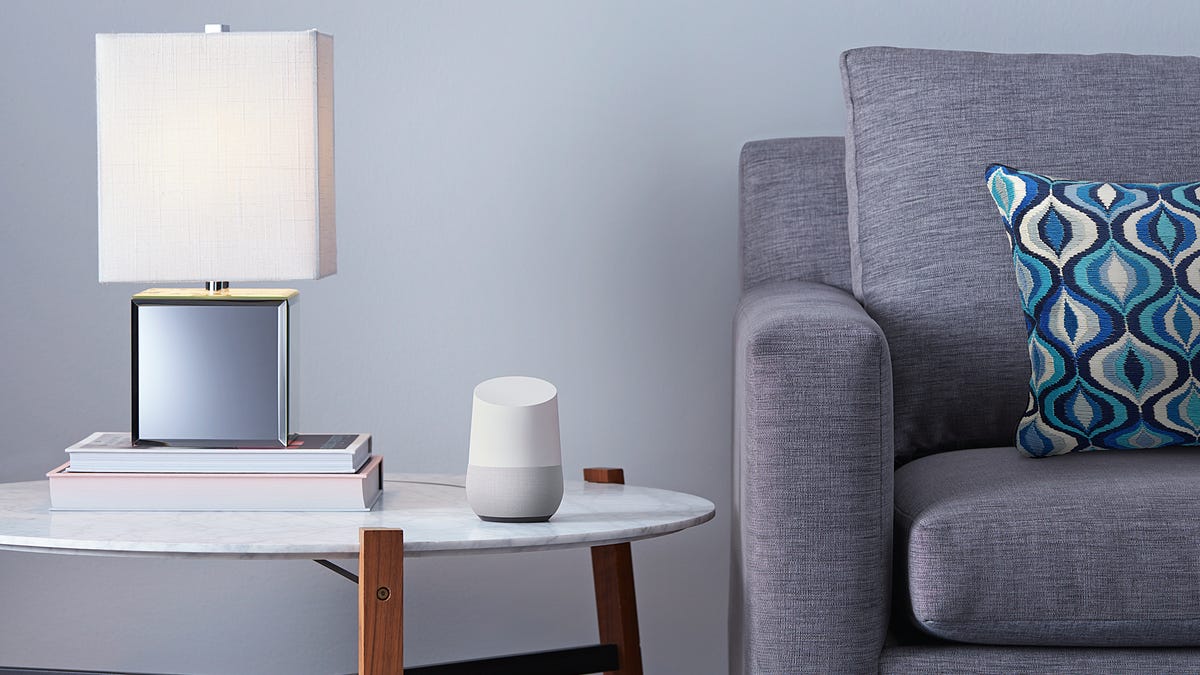Google’s Pixel hardware event is really about software
Even though the search giant is expected to show off enticing hardware -- new flagship phones, a Chromecast, a smart home hub -- the event is about one thing: getting Google's AI into your life.

Later this week, Google is expected to unveil a bevy of new products: phones, a smart home hub, a Wi-Fi router and possibly more. It's all stuff you can touch and pick up -- objects made of atoms.
But don't let the hype around the new hardware fool you. The launch event, taking place in San Francisco on Tuesday, isn't really about hardware. As is almost everything Google does, this is firmly about code.
Think of hardware, whether it's the rumored Pixel phone or the previously unveiled Google Home speaker, as the physical gateway into the company's software, which can't exist on its own. That's how Google makes money -- by using software to collect your data, which advertisers covet. These products ensure that once you wrap yourself with Google software, you stay that way.
Google is expected to unveil a new 4k Chromecast.
So what kind of software, specifically, is Google trying to hook you on?
It goes back to Google Assistant, the virtual helper that the search giant introduced at its annual I/O developer conference in May. Google CEO Sundar Pichai heralded it as the future of Google. In fact, he said, the software is everything you think of when you think of Google -- search, driving directions, restaurant information -- unbound from the traditional search bar where you type in queries.
Instead, Google Assistant will know you personally. You can talk to it with voice commands, or chat with it in a messaging app. The more you use it, Pichai said, the more it learns your habits, likes and dislikes, and the better its artificial intelligence can serve you.
Get ready for the AI rumble
Google is just the latest to push the notion of a digital assistant, with Apple having kicked off an artificial intelligence race with Siri back in 2011. Since then, Microsoft rolled out Cortana (named after the Master Chief's AI sidekick from the Halo video game franchise) and Amazon offers Alexa through its Echo family of speakers. AI has increasingly become both a fertile battleground and an opportunity for companies to band together to educate the public about its benefits.
Google thinks it can top those other services because of its long history as a search company -- and the mountains of data it's already collected. Google already released its first entree into Assistant earlier this month, with the chat app Allo. With the mobile app, on Android and iOS, you can type in search requests while chatting with a friend, or you can chat with the Assistant directly, like you would a chatbot.
Google is hoping to give its Assistant digital helper, which comes with its Google Home speaker, more real world experience.
On Tuesday, Google will likely talk about a few devices that will tie into Assistant. The most prominent are the Pixel and Pixel XL phones, which mark a break from the company's history of Nexus phones. While Nexus phones were developed in partnership with other vendors like LG or Huawei, Google is taking full ownership of the Pixel phones, expected to be presented as super flagship phones able to compete with the likes of the iPhone 7 and Galaxy Note S7.
Pixels will likely share the stage with the Google Home speaker, which was unveiled at I/O. But again, the hardware ultimately doesn't really matter.
"In and of itself, Google making a speaker is vaguely interesting, but it really is the software and the Google assistant that makes Home an interesting device," said Jan Dawson, an analyst at Jackdaw Research.
Getting personal with Google
Google Home gives the company a brand new challenge.
While Google has offered predictive searches for years with Google Now, already found on Android phones and iPhones, having a single speaker in the living room means Google will have to cater to a number of different family members of varying age -- all with unique personal tastes.
How it becomes personalized for each member of the family -- instead of just individual phone users -- is what Google will have to explain on Tuesday.
Google's AI in general could stand to use more hands-on experience with consumers. As mentioned earlier, the more you use it, the better it gets. And right now, it's still not all that great.
When Google released Allo earlier this month, CNET editor Lynn La tested out a handful of scenarios where the app's "Smart Reply" feature -- which produces ready-made answers using Google's artificial intelligence -- reacted to real world situations. Mostly, Google's software had solid responses. Others, not so much. Take, for example, this scenario where she used Smart Replies to react to getting fired. (Smart Replies are in purple):
The experiment shows just how unpolished Google's AI software can be right now.
But, again, there's a reason. Before Google first teased Allo in May, I asked product manager Amit Fulay about Smart Replies. He said those replies aren't just canned responses -- they become more tailored to you the more you use it. So, for example, if you use a certain emoji a lot, Smart Reply might eventually suggest it in certain scenarios.
And that illustrates why Tuesday is so important to Google. The company is finally going to give its software some broad real world experience. There are bound to be people barking questions at Google Homes and Pixel phones and getting back some befuddling answers, because the software doesn't know its new owners yet.
Google hopes this event marks the start of when it'll finally overcome those growing pains.

